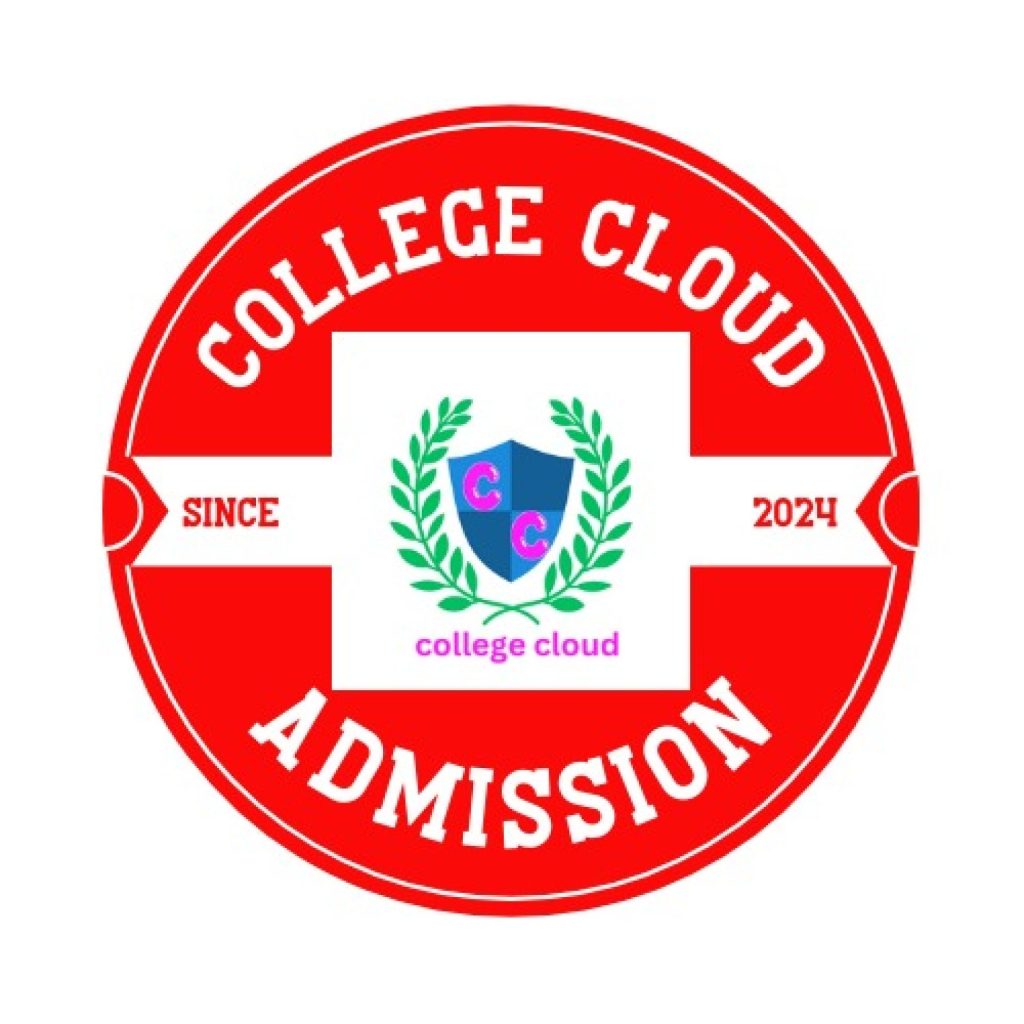The choice of a B.tech Branch is a very important decision that has a major impact on your professional career. The numerous engineering specializations allow students to find it difficult to identify the branch that suits them best. The right choice is influenced by several factors, including personal interests, career goals, industry demand, and job market demand. Some students may be interested in nuclear technology fields such as mechanical, civil engineering, and electrical engineering, while others may be interested in new fields such as artificial intelligence, data science, and cybersecurity. Therefore, it is important to know all the specializations and your future areas before you make a decision.
Another popular issue with students is how to gain admission to B.Tech without JEE. Knowing the process of registration, qualifications needed, and steps of application can guide the students accordingly.
This blog will direct students in opting for the right B.Tech branch, in learning about all the different admissions processes, and in finding multiple routes to acquire a seat within an engineering program.
Knowing Various B.Tech Streams
Computer Science Engineering (CSE)
Involves programming, software development, and artificial intelligence.
Ideal for students who are interested in coding, algorithms, and emerging technologies.
High demand in IT firms, startups, and multinational companies.
- Involves programming, software development, and artificial intelligence.
- Ideal for students who are interested in coding, algorithms, and emerging technologies.
- High demand in IT firms, startups, and multinational companies.
Civil Engineering (CE)
- Handles construction, infrastructure, and environmental projects.
- Ideal for students who want to design roads, bridges, and large buildings.
- Employment opportunities in government projects, real estate, and private construction companies.
Mechanical Engineering (ME)
- Handles designing, manufacturing, and maintaining machinery.
- Ideal for students who love automobiles, robotics, and automation.
- Job prospects in car, aircraft, and heavy equipment industries.
Electrical Engineering (EE)
- Encompasses power generation, electrical circuits, and automation technologies.
- Ideal for students who have an interest in power plants, electrical grids, and electronic devices.
- Career prospects in energy, telecom, and automation industries.
Electronics and Communication Engineering (ECE)
- Handles communication systems, embedded systems, and networking.
- Best for students interested in mobile networks, satellites, and IoT.
- Career prospects in telecom, electronics manufacturing, and defense industries.
Information Technology (IT)
- Comparable to CSE but with greater emphasis on software applications, cybersecurity, and databases.
- Ideal for students who are interested in web development, cloud computing, and IT management.
- Career opportunities in IT companies, banking, cybersecurity, and cloud computing organizations.
Artificial Intelligence & Machine Learning (AI & ML)
- Encompasses AI technologies, robotics, and deep learning algorithms.
- Best for students who are enthusiastic about automation, data science, and AI-based systems.
- Great demand in IT, healthcare, finance, and automation sectors.
Chemical Engineering
- Involves process design for chemical industries such as petroleum, food processing, and manufacturing.
- Adequate for students with an interest in chemistry, industrial processes, and materials science.
Admission in B.Tech: How to Apply?
Following are the principal forms of B.Tech admissions:
Admission to the entrance examination for B.tech course
- The majority of engineering universities provide B.Tech admission based on the entrance examination.
- To apply, students must get themselves registered online, study for the exam, and get a good ranking.
Direct Admission in B.Tech
- Few private universities provide direct B.Tech admission without entrance examinations.
- It’s through 12th board marks in Physics, Chemistry, and Mathematics (PCM).
Eligibility conditions:
- 50-60% minimum PCM marks in 12th, depending on the college.
Found among: Deemed and private universities.
Btech lateral entry admission
- They can directly join the 2nd year of the B.Tech course.
- Eligibility: Diploma/B.Sc. with minimum percentage as specified by the university.
- Famous for: Mechanical, Civil, Electrical, and CSE streams.
Online B.Tech Admission
- Numerous universities now provide online B.Tech courses for working professionals.
- These schemes enable students to pursue studies while working in virtual classes.
- Best suited for: Flexible study options for students.
- Popular colleges: IGNOU, Amity Online, and other UGC-approved institutions.
Admission b tech online form
Students must register themselves for B.Tech admission by submitting an online application form for B.Tech registration.
Application steps:
- Open the official college/university website.
- Fill in the B.Tech online application form with academic and personal information.
- Upload mandatory documents (marksheets, ID proof, etc.).
- Make an online payment for the application fee.
- Submit the form and await confirmation.
Career Opportunities for Various B.Tech Branches
Every branch has various job positions and sectors where graduates can be employed. Below are some of the career opportunities for various B.Tech specializations:
Computer Science and IT
- Computer Science and IT test software programs for various industries with software engineer Dedeen.
- It Specializes in improving manufacturing processes in areas such as aerospace, space travel, and robotics.
Electrical & Electronics Engineering
- Power Plant Engineer – Responsible for power generation and supply in thermal, hydro, and nuclear power plants.
- Telecom Engineer – Designs mobile networks, broadband services, and satellite communication networks.
- Embedded System Developer – Creates software and hardware for smart devices, automation, and IoT.
Biotechnology & Chemical Engineering
- Pharmaceutical scientists conduct research and develop new drugs and vaccines.
- The choice of the right B.Tech branch will help you build a strong career in the field of interest.
How to Choose the Right B.Tech Branch?
Based on Interests
| Interest | Suggested Branch |
| Coding & Software | CSE, IT, AI & ML |
| Machines & Manufacturing | Mechanical Engineering |
| Buildings & Infrastructure | Civil Engineering |
| Electrical Devices & Circuits | Electrical, ECE |
| Biology & Medicine | Biotechnology |
| Chemistry & Industrial Processing | Chemical Engineering |
According to Career Goals
Your career goals will decide which B.Tech branch is right for you. Each branch has different opportunities, salary potential, and sectors. This is how you can choose the best branch according to what you want in your career:
Want a High-Paying IT Job? Choose CSE, IT, AI & ML
If you are seeking a lucrative career in the IT field, then Computer Science Engineering (CSE), Information Technology (IT), or Artificial Intelligence & Machine Learning (AI & ML) are the best options. These fields specialize in software development, data science, artificial intelligence, cybersecurity, and cloud computing.
Why should you opt for these fields?
- High demand in IT firms.
- Well-paying careers in top MNCs such as Google, Microsoft, Amazon, and Infosys.
- Future-proof professions with development in AI, cybersecurity, and cloud computing.
Available job roles:
- Software Engineer
- Data Scientist
- Cybersecurity Expert
- AI & ML Engineer
Want to Work in Core Industries?
Opt for Mechanical, Civil, or Electrical Engineering
If you wish to work in core industries such as construction, manufacturing, power plants, or automobiles, then Mechanical, Civil, or Electrical Engineering are good choices. These domains provide secure jobs in government and private sectors.
Why opt for these domains?
- Jobs in sectors such as automobile, infrastructure, and energy.
- Jobs in public sector enterprises (PSUs) and government sectors.
- Good career prospects in mechanical, civil, and electrical projects.
Job positions available:
- Structural Engineer
- Power Plant Engineer
- Automobile Engineer
- Construction Manager
Want to work in Research & Development?
Opt for Biotechnology or Chemical Engineering
If you love scientific research and technological innovation, then Biotechnology or Chemical Engineering are the ideal streams. These streams specialize in medicine, genetics, pharmaceuticals, and industrial chemistry.
Why opt for these streams?
- Perfect for science, research, and experimentation lovers.
- Pharmaceuticals, healthcare, and food sectors have high demand.
- Research laboratories, universities, and biotech firms offer opportunities.
Job positions available
- Pharmaceutical Scientist
- Biomedical Engineer
- Petroleum Engineer
- Research Scientist
Conclusion
Choosing the right B.Tech branch is one of the most important career decisions. In various technical specialties, it is a matter of careful assessment based on the customer’s interests, skills and potential for future employment. Furthermore, knowledge of the approval process is extremely important. Based on revenue and interest, you can choose to approve directly in B.Tech, B.Tech lateral entries, or online-B.Tech courses. Choosing a branch that suits your skills will improve your chances of success. Certain branches offer appropriate paying jobs such as Computer Science Engineering (CSE) and Artificial Intelligence (AI & ML), while other branches such as Mechanical Engineering and Civil Engineering have opportunities in the core sector. If you want to avoid entrance exams, direct input can be a practical option. While lateral entries are best for graduate owners, online courses offer flexibility for skilled workers. Whether you are applying for a buoyancy test or direct approval, use the appropriate application process. A proper B.Tech branch not only provides employment opportunities, but also long-term career financing and stability. Take your time to research and make the wise decision to have a promising and rewarding future in the engineering field.

